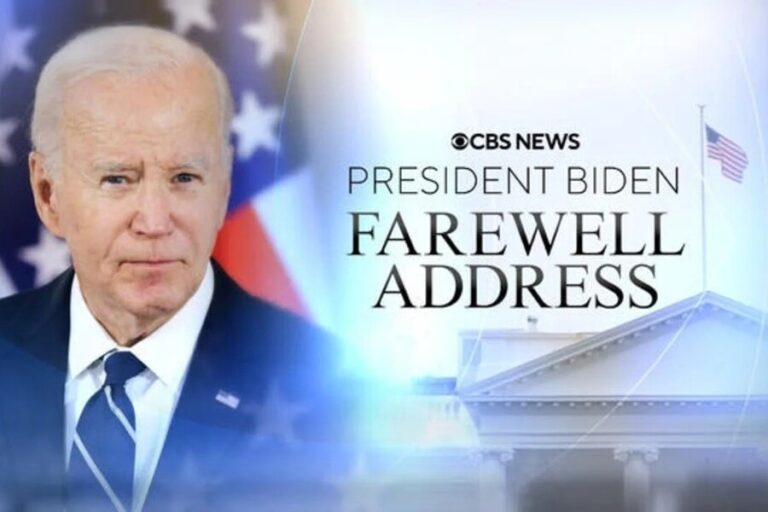President Joe Biden delivered his farewell address from the Oval Office on Wednesday night, marking the conclusion of his presidency and nearly five decades in public service. Speaking directly to the nation, Biden reflected on the challenges of his term while issuing a stark warning about emerging threats to democracy, particularly the rise of what he called a “tech-industrial complex.”
Drawing a historical parallel to President Dwight D. Eisenhower’s 1961 warning about the “military-industrial complex,” Biden cautioned that concentrated power in the technology sector could undermine democracy, equality, and truth. He criticized the spread of misinformation, the decline of fact-based reporting, and the unchecked influence of social media. He also pointed to the transformative and potentially dangerous role of artificial intelligence, which he called “the most consequential technology of our time.”
Biden expressed deep concern about what he described as the growing oligarchy in the United States, warning that a small group of ultra-wealthy individuals now holds disproportionate power and influence. He proposed significant reforms, including 18-year term limits for Supreme Court justices and a constitutional amendment clarifying that no president is immune from prosecution for crimes committed while in office. While acknowledging the difficulty of enacting such changes, Biden underscored their importance in safeguarding democracy.
Reflecting on his presidency, Biden highlighted key achievements, such as strengthening NATO, supporting Ukraine against Russian aggression, and positioning the United States as a leader in artificial intelligence development. Domestically, he pointed to bipartisan efforts on gun control, job creation, and programs for veterans. He noted the resilience of American democracy during a challenging period and expressed pride in his administration’s accomplishments. Despite these efforts, Biden acknowledged the public’s skepticism, citing polling that shows only 44% of Americans approve of his performance.
Biden also addressed the recent ceasefire and hostage release agreement between Israel and Hamas, a deal reached through U.S. mediation. While his administration negotiated the agreement, Biden emphasized that its implementation would largely fall to the incoming administration of President-elect Donald Trump. He stressed the importance of continuity in leadership, noting that his team worked closely with Trump’s advisors to ensure a smooth transition.
The speech marked the end of Biden’s presidency and his long career in public service, which began in 1973. Apart from a brief hiatus after his tenure as vice president, Biden has been a continuous presence in American politics. He used his farewell address to call on Americans to remain vigilant in protecting democracy, urging them to “stand guard” and “keep the faith” as the nation confronts new challenges.
Biden concluded his address with an optimistic message for the future. He expressed pride in the progress made during his presidency and wished the incoming administration success, emphasizing his desire for America to continue thriving. “I’m so proud of how much we’ve accomplished together,” he said. “And I wish the incoming administration success because I want America to succeed.”
His final words encapsulated his vision for the nation and his hope for its continued strength. “May you all be the keeper of the flame,” he said. “May you keep the faith. I love America. You love it, too. God bless you all, and may God protect our troops.”
